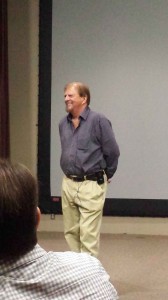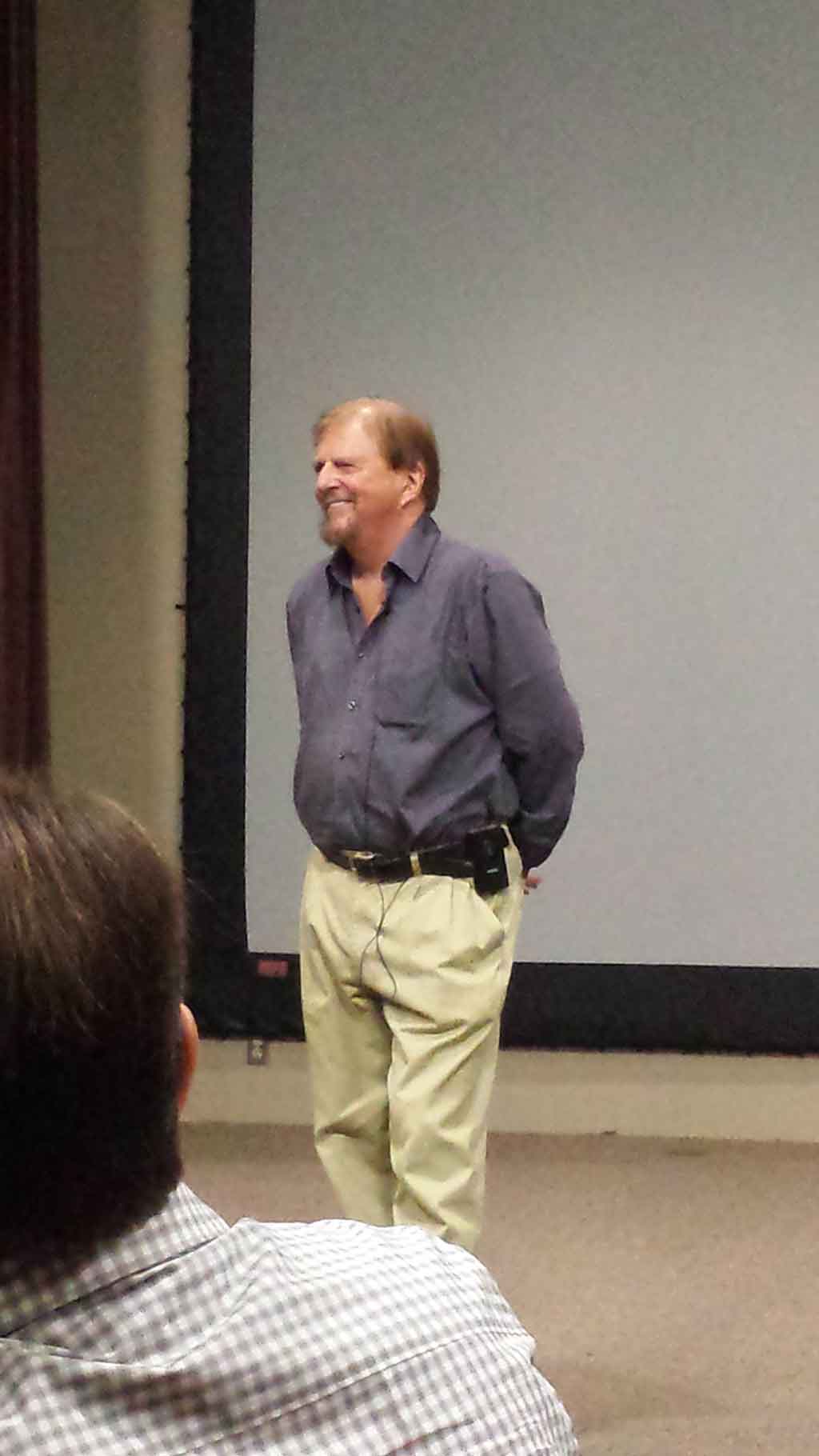By Martin Castro (The Cascade) – Email
Print Edition: October 29, 2014

“Nobody sees war as a problem … they’re the way [countries] did business.”
On Wednesday October 22, UFV was visited by journalist Gwynne Dyer, who spoke to a crowd of around 40 to 50 people in B101. Dyer spoke primarily on the effects war has had on Canada and how the methods of fighting wars have changed through the years, especially in Europe. He focused on Canada’s involvement in the First and Second World Wars, as well as touching on more modern conflicts such as those in the Middle East.
Dyer made the point early in his lecture that Canada’s involvement in wars has been, for the most part, unnecessary: “At no point in any of the major wars [was Canada] threatened in any direct way … Nobody was casting lascivious eyes on Winnipeg,” he said.
But although Canada has been largely ignored by enemies throughout conflicts in our history, its involvement in WWI shaped certain reflexes about war. These reflexes that Canada had, Dyer reasoned, were at least partly created by a perceived American threat to Canada.
“The belief in Canada that there was an American threat persisted [all the way up to and including] the 20th century,” Dyer said. He pointed out that as a result, Britain convinced Canada to support them in exchange for their support defending Canada against the US. Even after confederation, Canada has remained at least partially loyal to Britain as a Commonwealth country, and, since the US has now become an ally, we are also economically and politically supportive of them.
After detailing the history of Canada’s military exploits up to and including the 20th century, Dyer commented on our attitude toward wars at the turn of the century. WWI was thought to be another in a “cycle of wars between the great powers … politically, it’s an identical phenomenon [to all preceding wars],” he said.
WWI was much more violent and brutal than anyone involved had anticipated it to be. This shock, argued Dyer, helped to form our idea of war as something to be avoided. He also argued that WWI, particularly the Treaty of Versailles, almost guaranteed the onset of a second war.
“We went in to the Second World War, because not to have gone in would have been to betray the dead of the first,” he observed.
Dyer noted that we still fight wars with the same mindset that was created by the results of WWII, and therefore are caught in another cycle. The difference is the focus is now on the Middle East, not Europe.
During the Q&A session at the end he addressed the current state of world conflict. He said terrorism’s goal is to lure the West “into doing something large and stupid … [like] invading the Middle East.” Dyer suggested ISIS is not a real threat largely due to their extremism, which he argued will be their undoing.
“The best thing we can do … is to stop intervening.”


